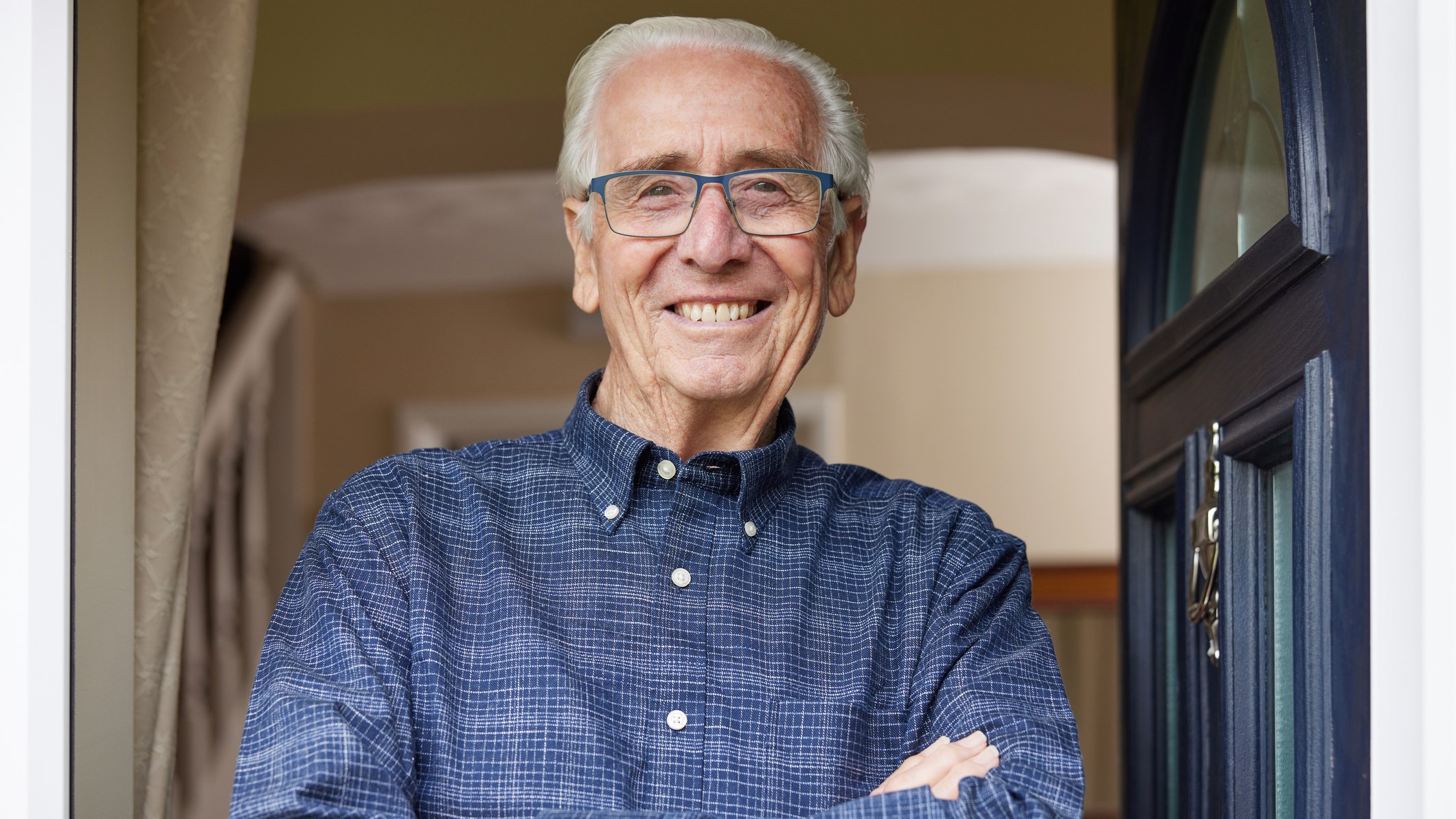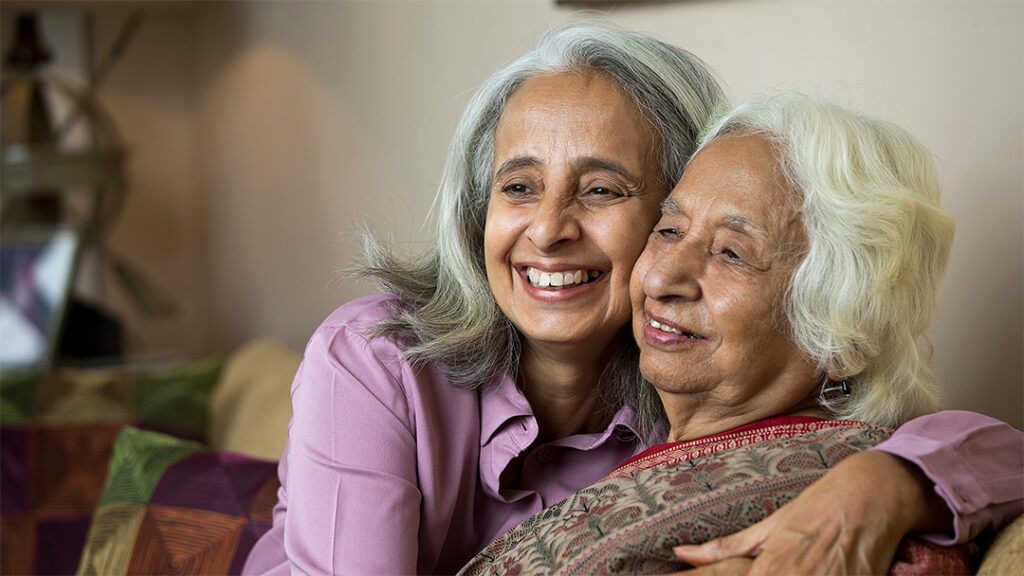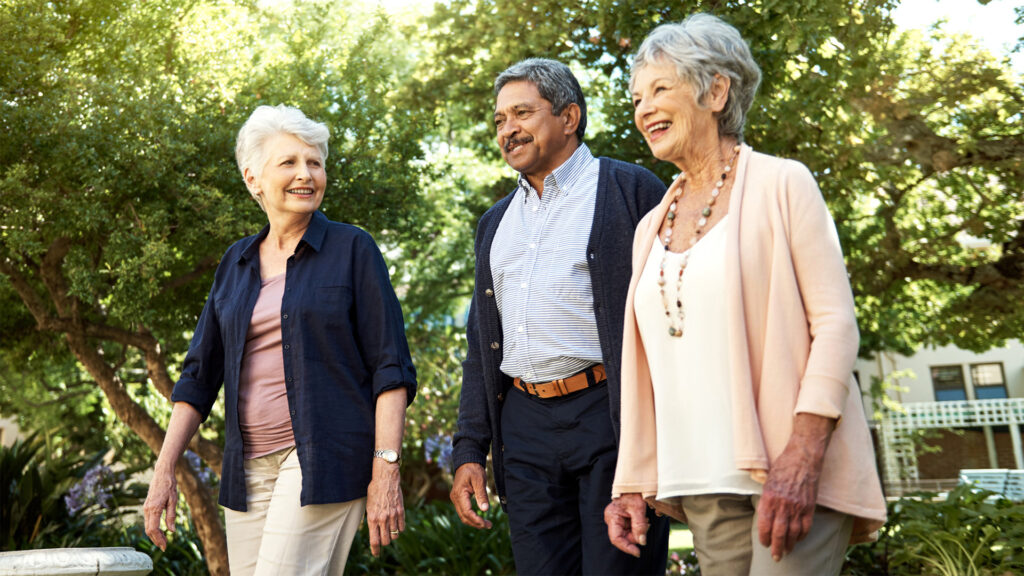There comes a time when an older veteran may need daily help with personal care, either at home or in a senior living community. By combining Veterans Affairs (VA) retirement benefits with other financial resources, veterans and their spouses can maximize their ability to pay for care services at a senior living community.
To help you understand what’s available, we’ve compiled this quick list. Keep in mind that some benefits may overlap.
- VA Health Care
- VA Aid and Attendance (A&A) Pension Benefits
- VA Pension
- VA Survivors Pension
- VA Disability Compensation
- VA Housebound Benefits Allowance
- Other Financial Resources
VA Health Care
Veterans enrolled in the VA health care system may qualify for age-related extended care services, which include senior and assisted living residences. Benefits are provided based on individual needs, eligibility and availability within the VA network.
The VA does not pay for a veteran’s rent at a senior living community, but may cover extra services they need while living there. Veterans should speak with a VA social worker to help decide if they need extra help from a nurse or caregiver at the community.

VA Aid and Attendance (A&A) Pension Benefits
Every month, thousands of eligible veterans and their spouses fail to take advantage of this program simply because they don’t know it exists.
Established in 1952, VA Aid and Attendance provides extra monthly payments on top of VA pension pay to cover personal care services such as bathing, getting dressed, medication assistance, incontinence management, and help getting in and out of a bed or chair.
Assisted and supportive care in a senior living community, whether provided by community staff or a third party, qualify as part of this program.
Eligibility
To qualify, you or your spouse must have:
- An honorable discharge from military service after serving at least 90 days of active duty, with at least one day served during a wartime period
- A medical diagnosis requiring daily assistance with two or more personal care services
- Monthly income that meets the eligibility threshold
- Limited liquid assets (e.g., savings, CDs, etc.)
The VA aid and attendance application process takes time and requires thorough documentation, so it’s important to apply as soon as possible. Once eligibility is confirmed, benefits are paid retroactively. If an eligible veteran is 90 years old or older, the application can be expedited. For details, visit VA.gov.
VA Pension
If you don’t qualify for VA Aid and Attendance benefits, you may qualify for the monthly pension designed for eligible low-income veterans. This money can be spent however the recipient chooses.
Please note that a VA pension is not the same as military retiree pay, which may require 20 years of service. However, military retiree pay might be another way to pay for assisted living outside of VA benefits.

VA Survivors Pension
Similar to the VA Pension, the Survivors Pension offers a tax-free pension to low-income surviving spouses or other dependents. Payments are typically based on financial need, the veteran’s wartime service, and other factors, and can be used however the recipient chooses.
VA Disability Compensation
This is a monthly tax-free payment made to veterans who became sick or injured during their service, or who had an existing condition made worse by their service. This benefit is not based on financial need. Veterans may spend this money however they choose, including for assisted living.
VA Housebound Benefits Allowance
Veterans may be eligible for this benefit if they receive a VA pension and spend most of their time at home due to a permanent, service-related disability. A housebound veteran cannot work or earn income from employment.
Housebound benefits provide extra monthly payments added to the monthly VA pension for qualified veterans and spouses. A veteran cannot receive Aid and Attendance benefits and Housebound benefits at the same time.

Other Financial Resources
Medicaid
Medicaid is a joint federal and state program that provides health coverage to individuals with limited income and resources. It can help cover the costs of long-term care for eligible veterans.
While it is technically possible to be eligible for both Medicaid and VA benefits, such as Aid and Attendance (A&A) or Housebound benefits, very few veterans get assistance from both. If eligible for both, they receive the one that offers the greater benefit.
Qualification criteria vary by state, and veterans may be eligible for both VA benefits and Medicaid. If you have questions, visit Medicaid.gov.
Long-term care insurance
It pays to plan ahead. Veterans who invest in long-term care insurance can use their policies to help cover costs related to senior living. Benefits depend on the policy’s terms and conditions, so consult your long-term care insurance provider for details.
State and local programs
Several states and local governments offer programs that help veterans cover the costs of senior living. These programs may provide financial assistance, waivers or other support services, often in collaboration with federal benefits. Contact your state or local veterans resource center or veterans service organization for more information.
Knowing your financial options is the first step toward creating a fulfilling retirement lifestyle.
Be sure to consult a financial advisor or VA benefits representative to better understand what resources are available to you.
If you’re considering independent senior living, we invite you to get started by reaching out to a Holiday by Atria community near you. We’d be honored to answer any questions you have.







